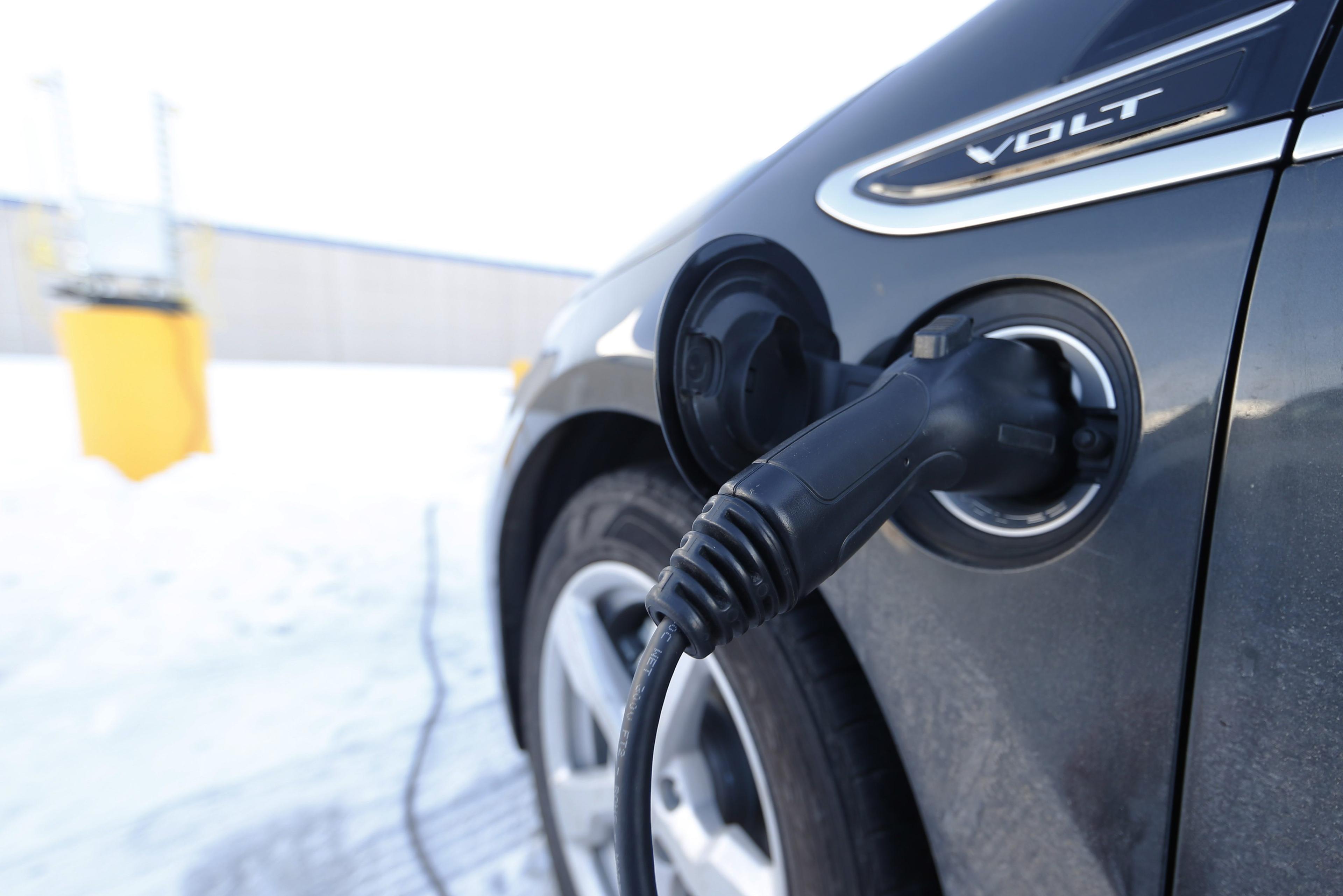
Sometime in the near future, Colorado Department of Transportation officials would like for you to be able to pull over at one of its rest areas and charge your electric vehicle.
But federal law that prevents the commercialization of interstate right-of-ways — including rest areas, park-and-rides, and similar facilities across the country — is preventing that. A change to that law, which has CDOT’s support, is part of the $715 billion transportation bill the U.S. House passed last week.
Readily available chargers will help convince more motorists to buy electric vehicles, which in turn will help the state meet its climate goals, said Michael King, CDOT’s assistant director of electrification and energy.
“Building charging in places where people are already traveling and want to travel, both for work, but also for recreation, is a really critical piece to move all of those goals forward,” King said.
The existing federal law dates back to the early 1960s and was intended to protect and promote private businesses — gas stations and the like — along highways. The federal government cited it in turning down a state plan to add charging stations to the Burlington Welcome Center on the Eastern Plains, CDOT officials said in a letter to the state’s U.S. House delegation.
State and national industry groups representing truck stops, convenience stores and fuel marketers want that law to remain intact. Some national chains, like 7-Eleven, have said they will add charging stations at some of their stores.
Chargers on government property will undermine those private investments, said Grier Bailey, executive director of the Colorado Wyoming Petroleum Marketers Association.
“When the government starts competing directly with private industry, utilizing government land, then you’re undercutting the tax base and you’re killing the investment that folks have made in their community,” he said.
CDOT hopes to accelerate private investment in electric vehicle infrastructure, not replace it, said the agency’s Executive Director Shoshana Lew.
“Ultimately, there could be a way for the market on its own to sort of take over some of these sites,” Lew said.
The state does not currently own or operate any public charging stations, Lew said, but rather has awarded competitive grants to private companies like ChargePoint, Inc. to install and operate them.
The state also wants to serve remote areas where businesses would have a difficult time turning a profit, Lew said. She also noted Colorado Parks and Wildlife’s partnership with EV company Rivian that will result in charging stations at every state park.
In Burlington, Lew said the state tourism office that operates the welcome center wanted a charging station — and privately owned gas stations nearby didn’t.
“We would be happy, I think, as a state to work with any of them to install charging,” Lew said. “But there was not a lot of interest from the private sector that we found.”
The House bill containing the law change now moves to the Senate, which is considering its own transportation proposal. How differences between the two will be reconciled remains unclear so far. The White House has been supportive of both, the Washington Post reported.









